Looking for upcycled and environment-friendly products? Check out Rimagined
Shailaja Rangarajan started Rimagined in an effort to promote conscious consumption while creating livelihoods for women in the urban poor and rural sectors.
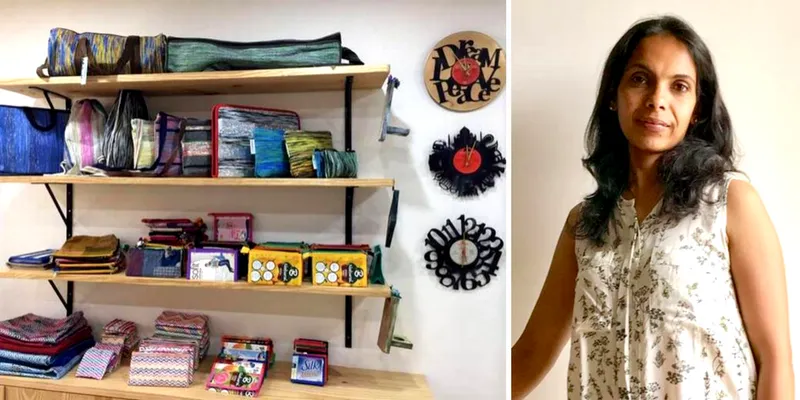
Urban India today produces nearly 48 million tonnes of municipal solid waste annually. The alarming rate of waste generation in the country will soon land us in a deep waste-management trouble.
Given this lifestyle around us despite our limited resources, Shailaja Rangarajan wanted to create a consumption pattern where waste could be recycled and put to a purpose. Shailaja created Rimagined, a platform to make this possible.
Promoting conscious consumption
“Rimagined is an outcome of my voluntary work in solid waste management (SWM). While working as a SWM volunteer in Whitefield, Bengaluru, I saw the crisis we are creating for ourselves with the kind and volume of garbage we generate today,” says 40-year-old Shailaja.
Until a few years ago, Shailaja was no different from the rest of the us. While enjoying a successful career as a supply chain process consultant, she was travelling and consuming as much as everyone else. But one fine day, Shailaja realised how merely waking up and going to work was becoming a burden to the environment. That was when she chose to do something about it. After quitting her job, she started volunteering on a full-time capacity for SWM work.

Shailaja started Rimagined in April of 2016, along with a silent partner, with an initial seed funding. Rimagined was launched as a reseller of upcycled products that brought together manufacturers and customers.
“Segregation is one step in addressing the waste we generate. But I realised we need to take a step back and figure out ways to ensure we don't keep dumping stuff, owing to our lifestyle of excessive consumption,” says Shailaja.
Upcycling was the concept that seemed closest to what Shailaja wanted to do. She envisaged consumption as something that didn't consume new resources. She wanted to give a new lease of life to products that are usually discarded.
Rimagined supports livelihoods of women in the urban and rural poor and the organisation ensures that its workers earn a dignified earning. While rerouting waste away from landfills, Rimagined also aims to create an identity for these women by facilitating their financial independence.
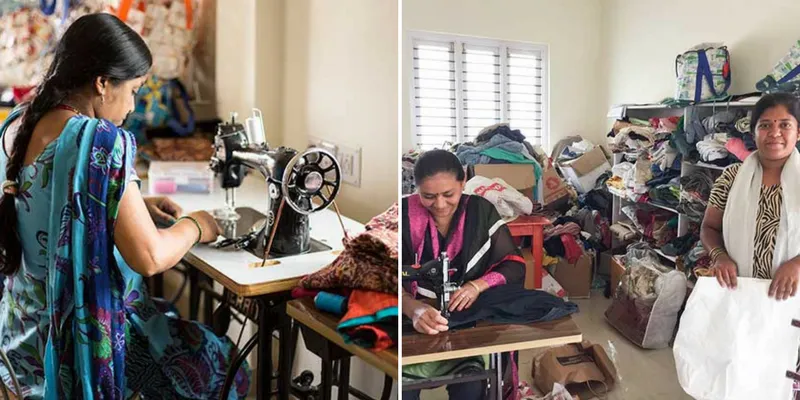
In India, there are many women working in the unorganised sector who rarely possess any specific skill sets. The key is to create a well-skilled women labour force that can be a part of the regular workforce.
“The impact effectively cascades into the society when the woman in the family is empowered,” Shailaja adds.
By buying a product on Rimagined, Shailaja believes that the consumer is doing his or her bit in helping the waste from ending up in a landfill. Besides, the women who are trained to create these beautiful utility products receive much-needed support.
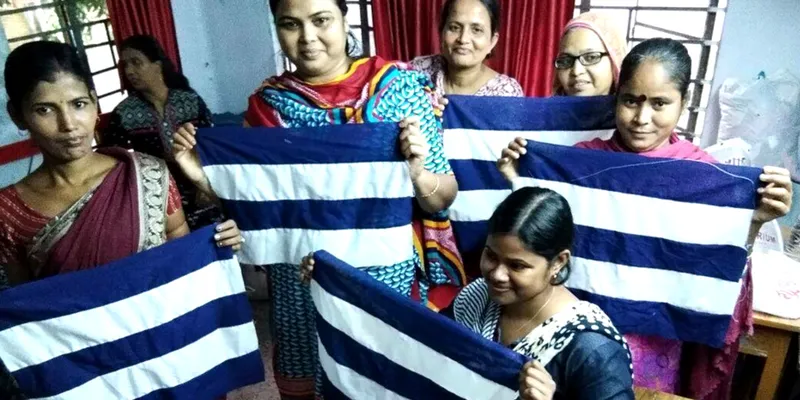
Rimagined was an online marketplace at the time of launch. Now it has its own retail outlet in Bengaluru that sells Rimagined label as well as creations of other product designers.
The process and the challenges
One of the many challenges that Rimagined has faced is the lack of awareness in India about upcycling. The other challenge that prompted Shailaja to get into retail is the mindset of people towards upcycled products.
“People often assume product created from waste will be of bad quality, and also that since it is mainly transformed waste, it should be priced very cheap,” says Shailaja.
These are created at centres in Bengaluru and Kolkata. The brand primarily uses materials that are locally available, since transporting waste defeats the whole purpose of putting waste to use. These locally available materials are then weaved into products.
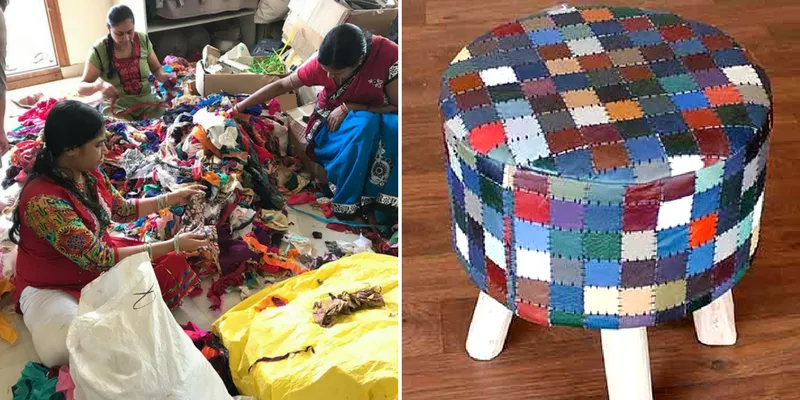
Once designs are conceptualised for the waste materials available, the team identifies groups of women who can make these products. The process involves training them and handholding them through learning and sample creation. After they get proficient, the team gets into production mode.
Process of upcycling involves sourcing waste, sifting and cleaning the material to become usable as raw material, product design, product creation, quality check, and finally, marketing.
Going eco-friendly
Talking about how people have taken to upcycled and eco-friendly products, Shailaja says, “The response has been a mixed bag I would say."
"People are surprised when they see the upcycled products. But they expect them to be priced way below the products made from virgin resources. They don't understand the effort that goes into this kind of transformation."
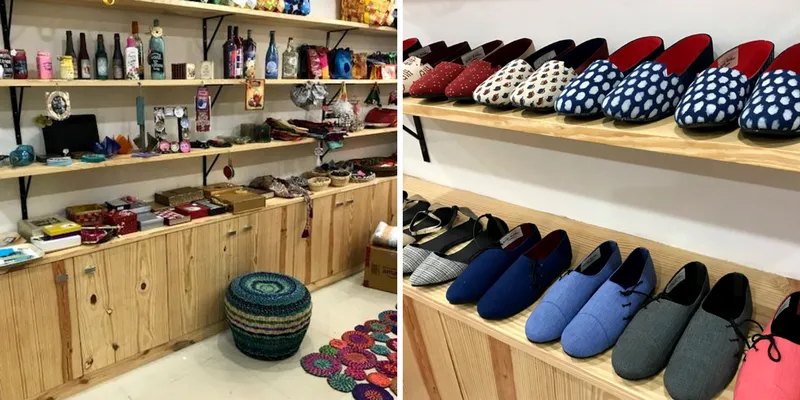
"At the same time, there are many people who consciously search for these products, either because they want to reduce their carbon footprint or they are looking for things that are very different as compared to the mass-produced stuff that is available everywhere,” she adds.
Rimagined has managed to pull away close to a tonne of waste from landfills. This includes all types of low value waste, such as waste that does not decompose or does not get effectively recycled.
Stuff such as fabric scrap, denim waste, broken glass, wood scrap, tyre and tyre tube waste, cement sacks, tetra packs to list a few materials, are also majorly upcycled.
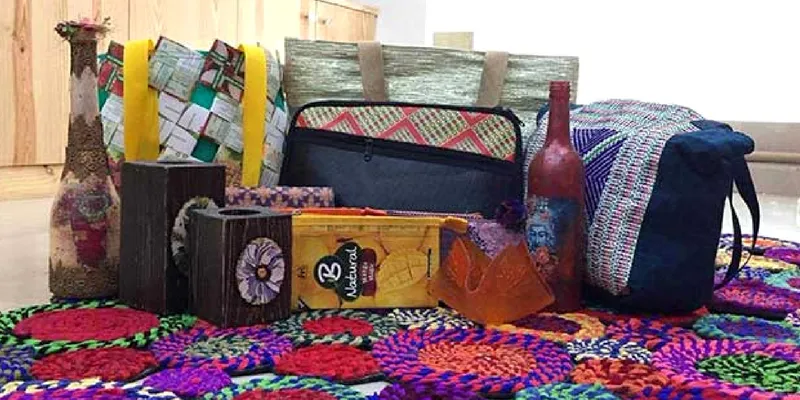
Shailaja plans to expand the centers to other locations as well. She aims to blend in the Indian heritage into the products by incorporating rich Indian art forms into her designs.
“Our upcoming range of products will reflect that. Also, the key is to create livelihoods and an ecosystem for growth of all the people who create products for Rimagined label. When Rimagined grows, I want to see my team of women also grow,” says Shailaja.







